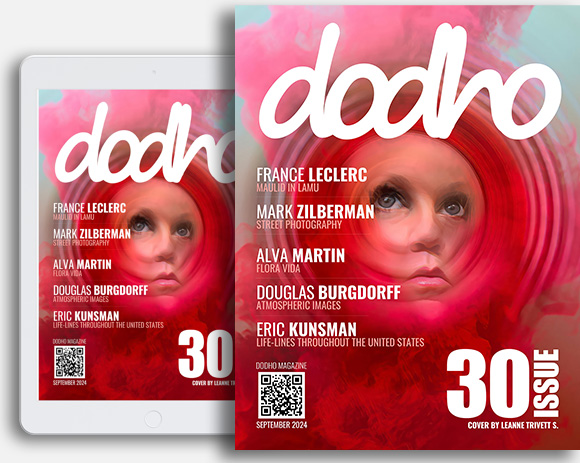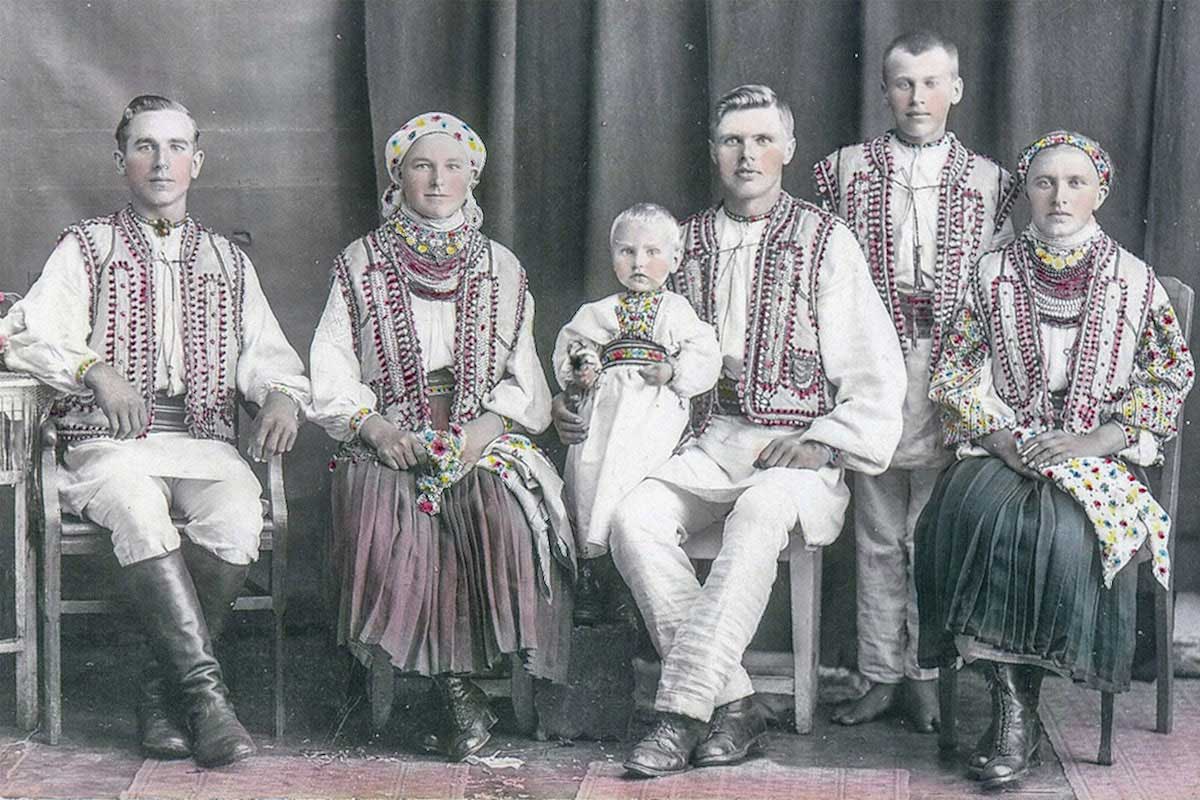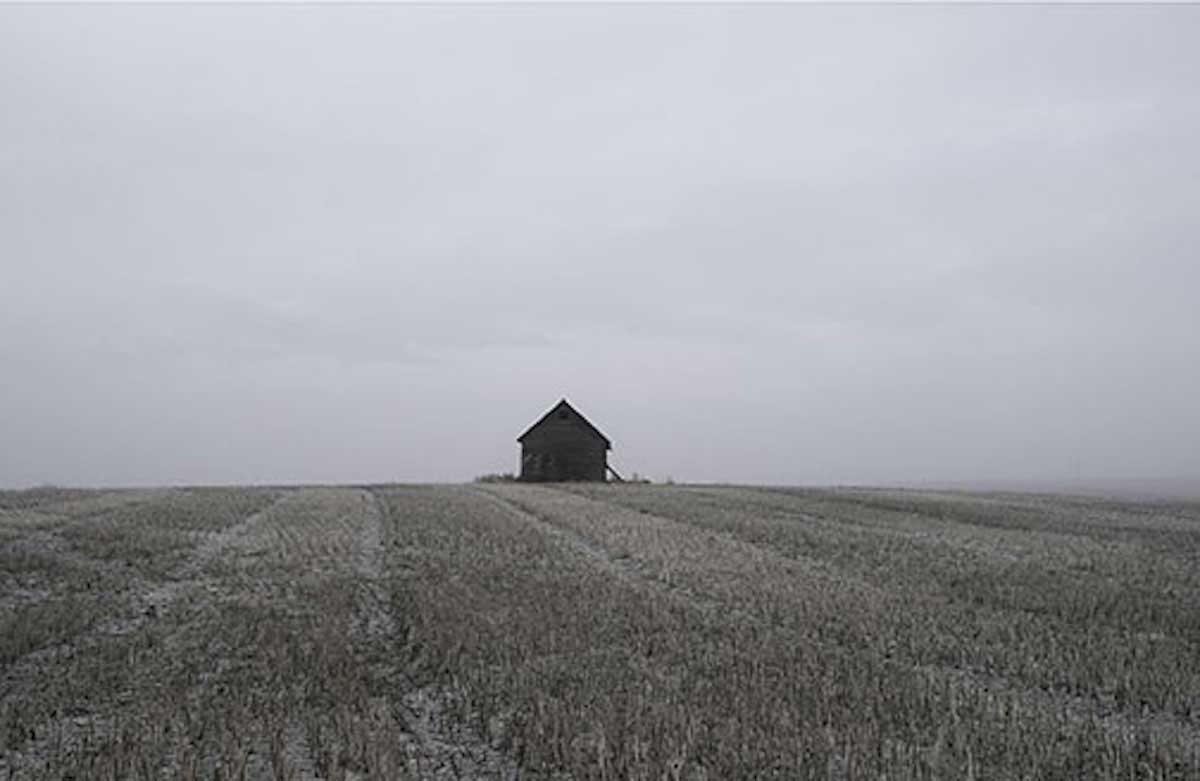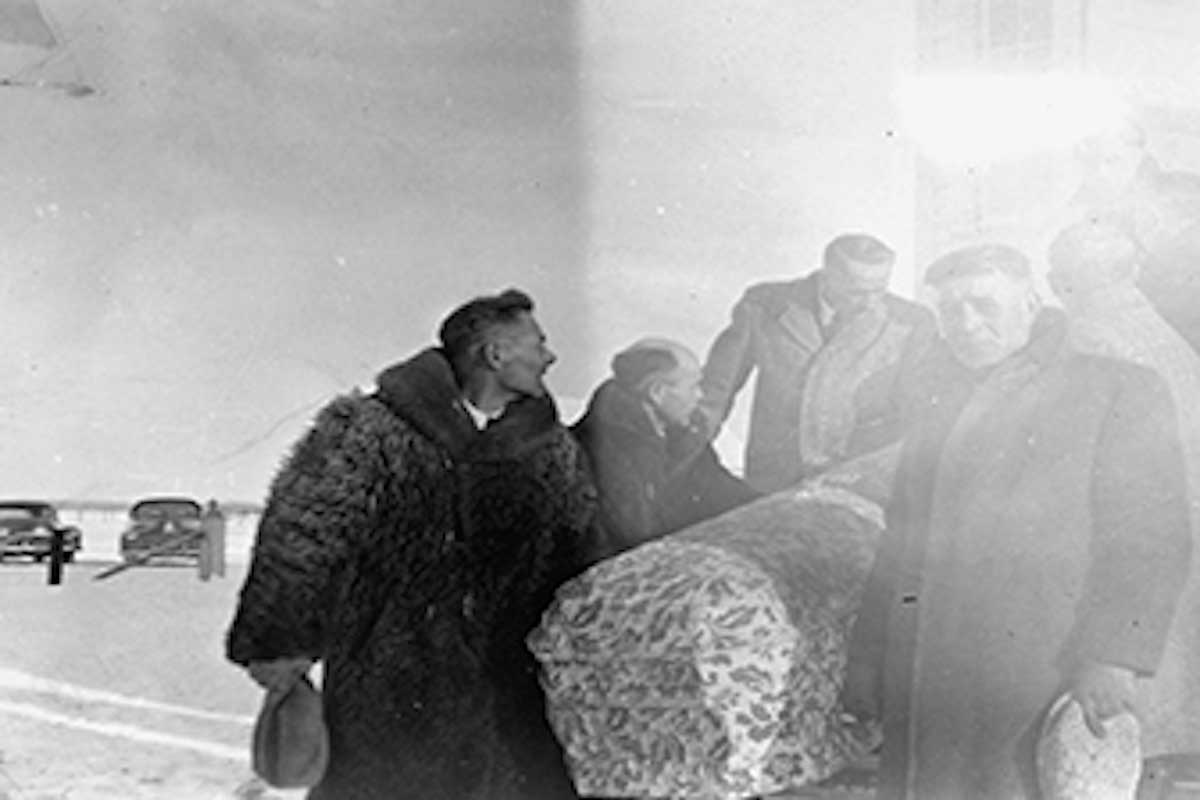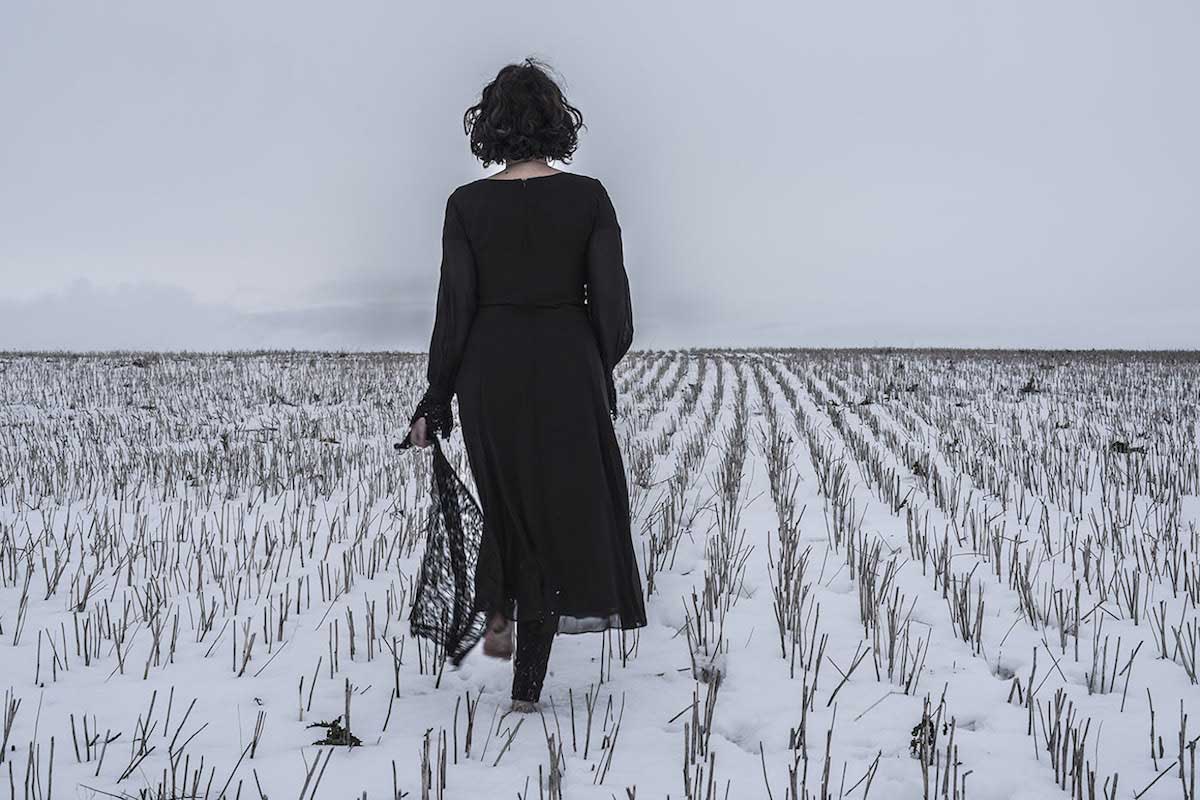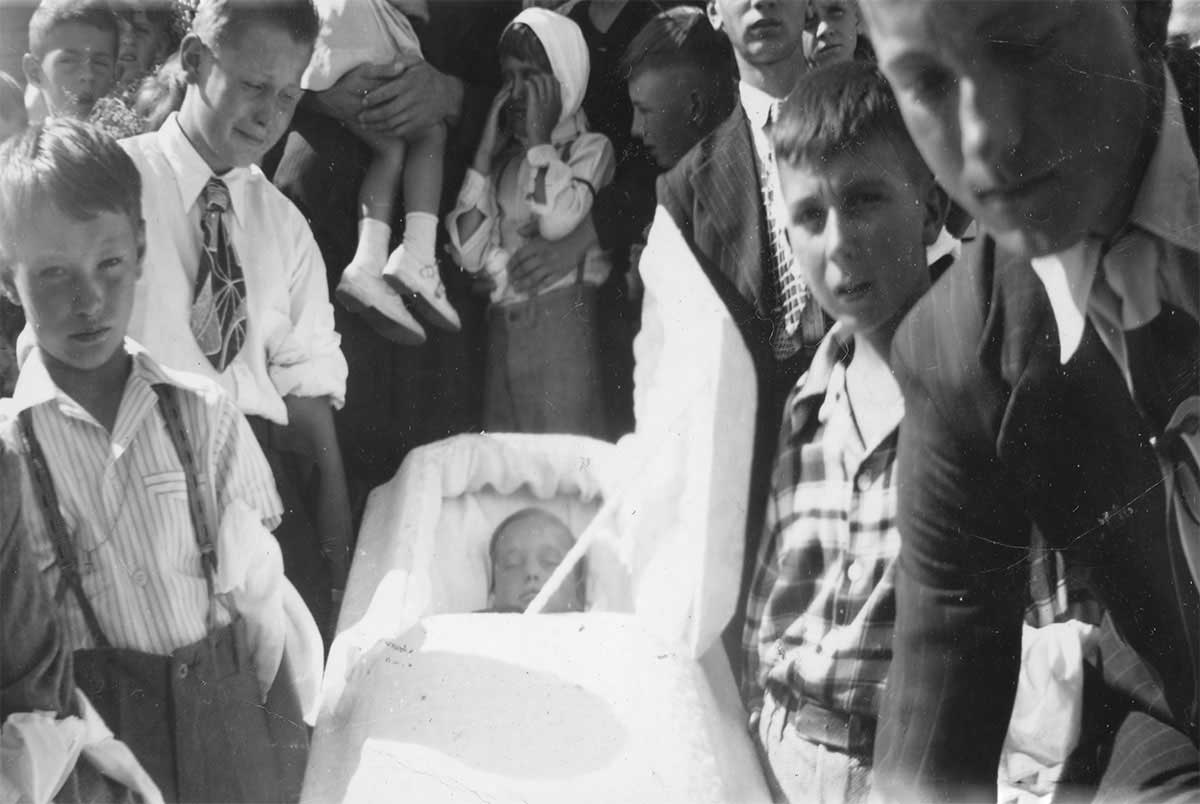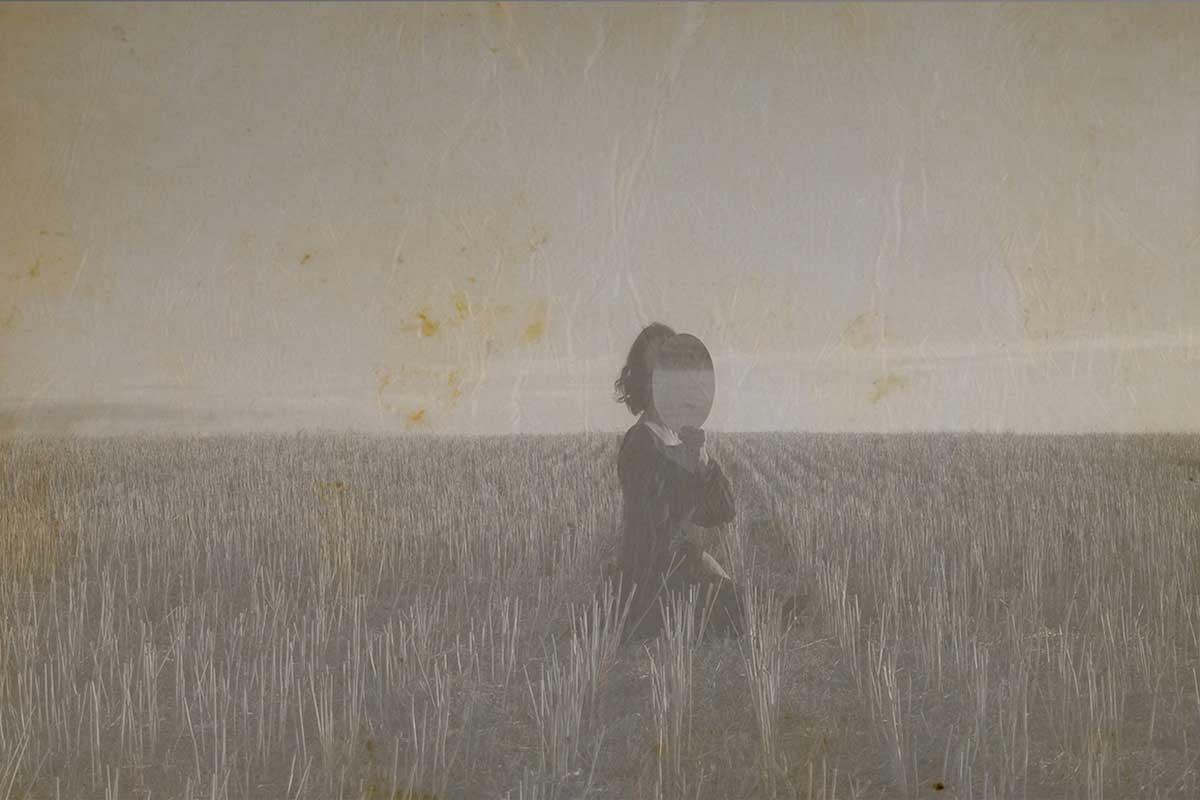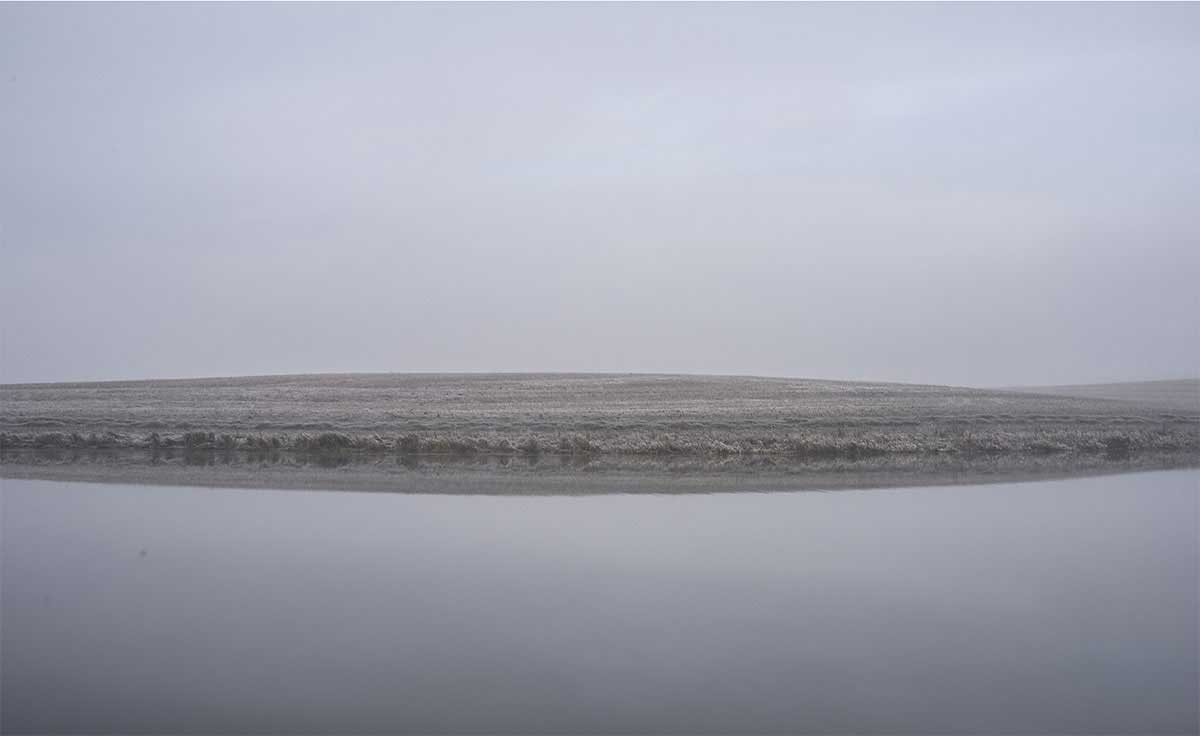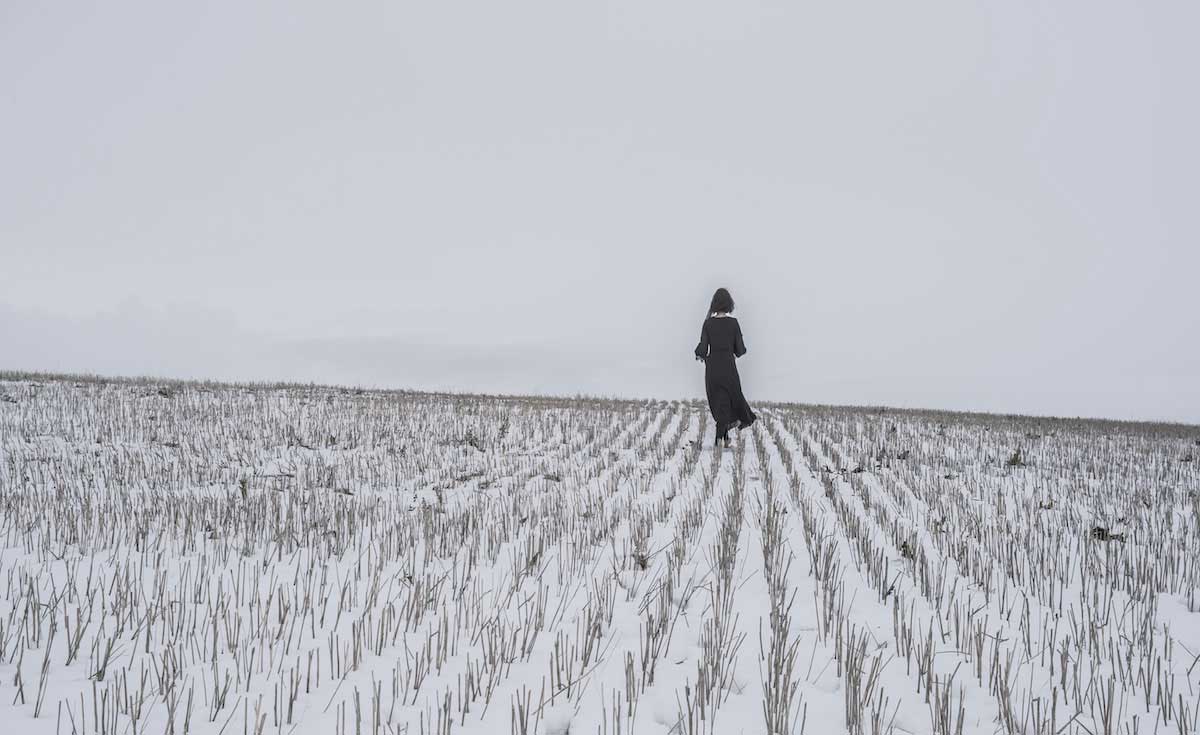I am a descendant of immigrants who came to Canada from Ukraine in 1897. They were the backbone of the Canadian government’s immigration program aimed at settling Western Canada.
A $10.00 filing fee bought them 160 acres of land – a dream come true. This is our story …

“A man is nothing but the landscape of his homeland.”
-Shaul Tchernichovsky.-
KRAÏNA gives form to an ‘imagined geography’ where time, identity, history and abstract spiritual concepts are blurred. My relationship with the land and the meaning that my life derives from it are echoes that prevail. The fragility of human existence and the role of the photograph in provoking an inquiry by the viewer are central to the series.Reworked and reprocessed deteriorating and damaged photographs – found in an inherited and much contested family photo album – are the keystone. Like ghosts of the past they are meant to provoke the seer’s imagination and inquiry. Their almost translucent black and white presence – tinged with ochre and cinnabar from years of neglect – defines the series’ moody, dreamy and muted palette. They are intermingled with painted images which heighten the sense of an ‘other worldly space’.
Vast uninterrupted vignettes of the icy Canadian prairies – spaces where scale and distance are difficult to gage – follow. A black-robed incarnation of destiny – the keystone of KRAÏNA – weaves her way throughout the series. Walking barefoot – as her ancestors did when they arrived in Canada – she appears like the mother thread of life – life where death is always present. This was the reality of the early immigrants.
KRAÏNA spurs an exploration of loss, shifting identity, and culture issues of global significance as we make our way through contemporary debates on immigration. The following is an excerpt on an article written by Melanie McWhorter concerning the series.
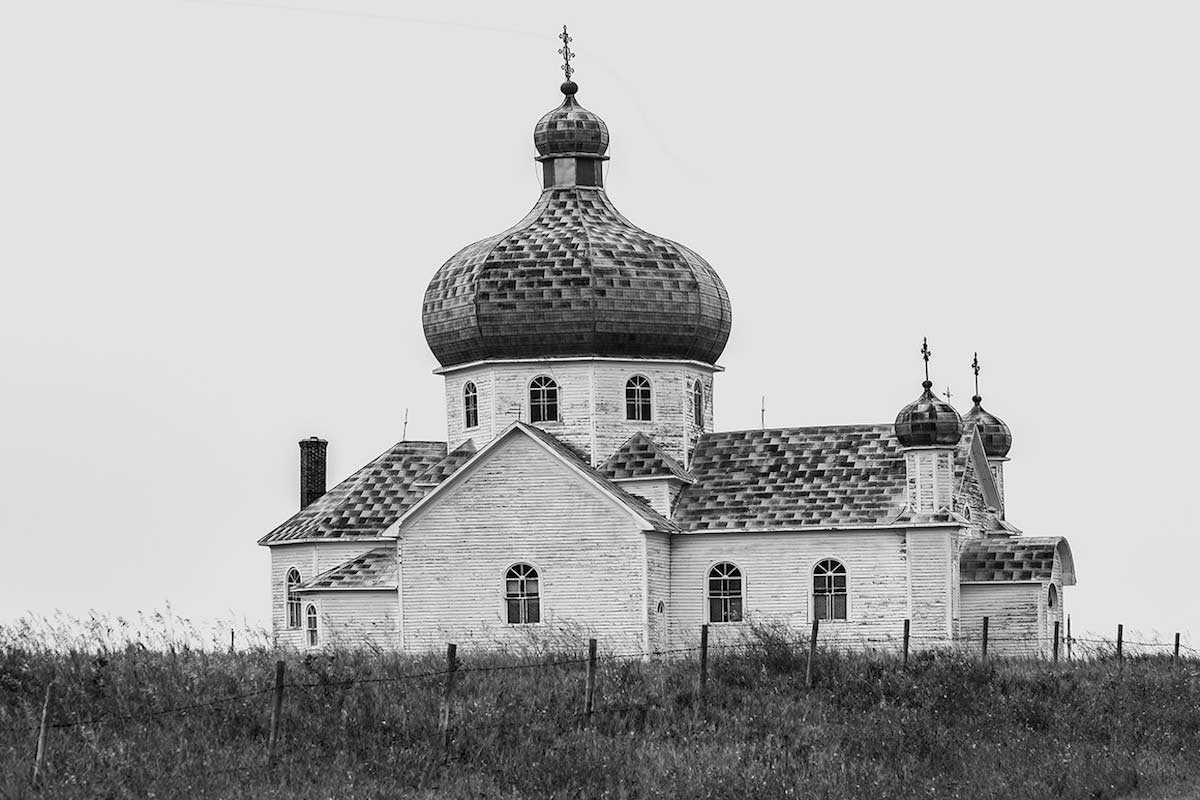
History and Presence are themes that permeate Lesia Maruschak’s project and book Kraïna: My Canada. The artist’s family were immigrants and transplants to the open prairies of Canada in the late 1800s and Lesia uses her contemporary imagery and historical family photographs to engage the viewer in an exploration of culture and place. One pivotal image is where Lesia, much like Barthes in the aforementioned photograph, is a baby in a parent’s embrace. She rests on the lap of her father with surrounding family members in traditional Ukrainian garb. It is the beginning of a story as a new family starts a new life in a new land. Here in this book the image itself has a new life. It is the center, or the middle, of all that is before and all that proceeds.
Her collection of vernacular family images in conversation with the present representation of self, landscape and everyday objects creates a sense of sadness and longing. She can be any woman in her self-portraits, a ghost from her past and, for the future, a reflection of another time. This very land is where Lesia conceals her face in her self-portraits, denying the camera the validation of identity as she turns from the camera, but she physically connects herself to the land in the performance and the photographs as she walks “barefoot – as her ancestors did when they arrived.” She is connected to the same land. She is participating in the symbolic experience and the photograph becomes the witness to her presence. Curator for our journey, she includes photographs of a seemingly salvaged, historical latter; a document of a young boy in a casket; the family cemetery; bound wheat stalks; family farmlands after the harvest; and a Ukrainian-inspired prairie church to build the story and mood of the book. Kraïna: My Canada is a narrative created by the artist and reads as artist project, family album, journey of self-exploration and a lament to those lost to time.
Untold and undocumented stories, many of men and women living subsistence and unremarkable lives leave many gaps in History, especially the stories of those in a new land with new lives and experiences: many lives lived and stories untold. They are people long forgotten, yet, their genes and diluted identity continue with each new generation. In Kraïna: My Canada, Lesia Maruschak honors her ancestors and, while many of their stories remain unrecorded, she creates her own narrative that visually examines self and place for future generations.
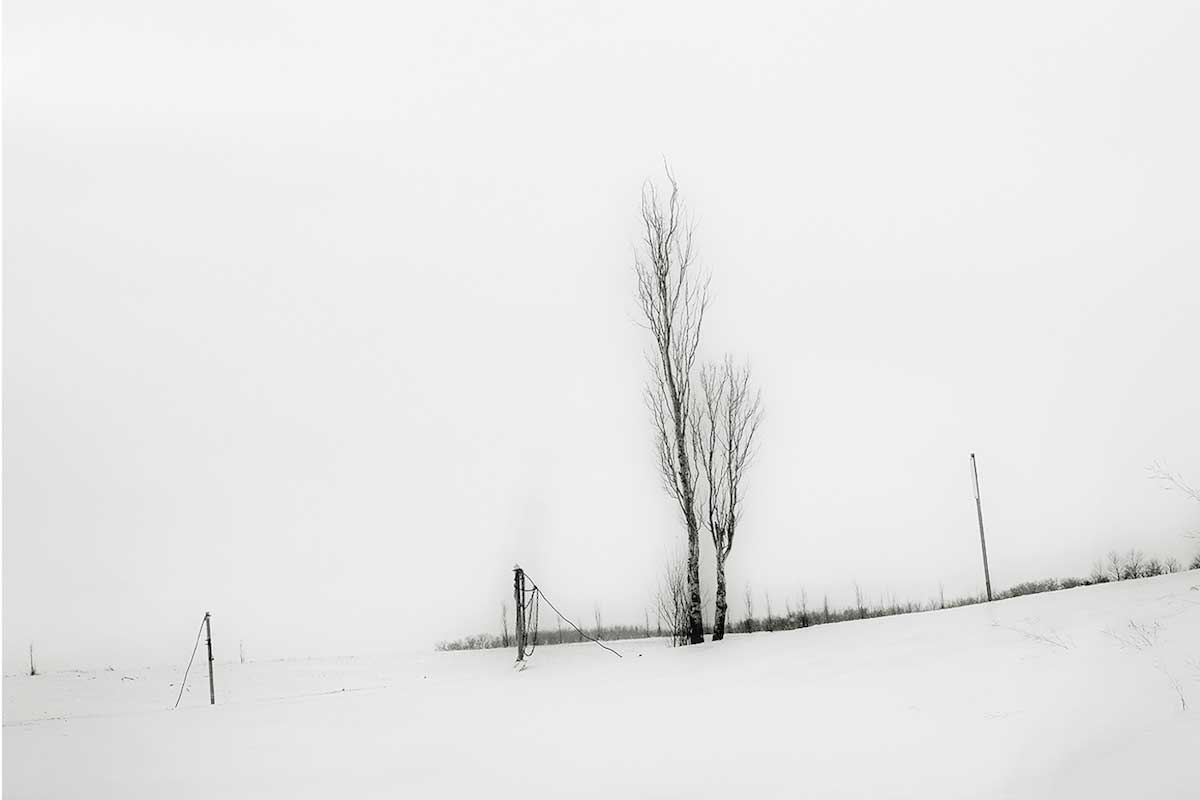
About Lesia Maruschak
Known for her poetic sensibility, Lesia Maruschak, is recognized as a contemporary artist who unveils an inner beauty defying place and time. Born in Alvena (Canada) in 1961, she spent her childhood on the Canadian prairies. She later received her MA in ethnography from the University of Saskatchewan, and a MBA from the University of Ottawa.
Inspired by the work of Alberto Giacometti and Peter Lindbergh, Maruschak began exploring the essence of beautify and mankind, our place in space and time, and memory and identity. Lindbergh, recognized as one of the most influential contemporary photographers, states: “I very much admire the honesty in your work and I do feel your love and empathy in all your photographs I know and love.” Maruschak’s exploration of the medium of photography and its boundaries – in her works and metaphorical performative elements – coexists with an emotional intensity, a sensibility and an honesty that come from deep within her. Her works delve into a visual exploration of our understanding of eternal subjects at the root of humanity.Maruschak’s works are in various national and international private and public collections and she has received numerous awards including the Governor General of Canada’s Caring Canadian Award and the Sovereign Medal award among others. She currently lives between Ottawa and Alvena. [Official Website]


